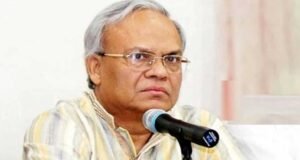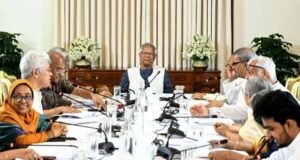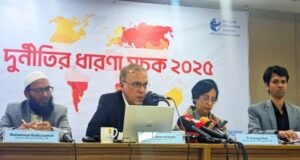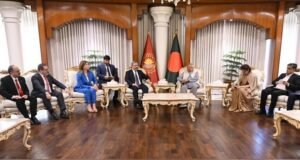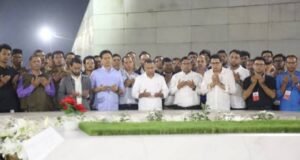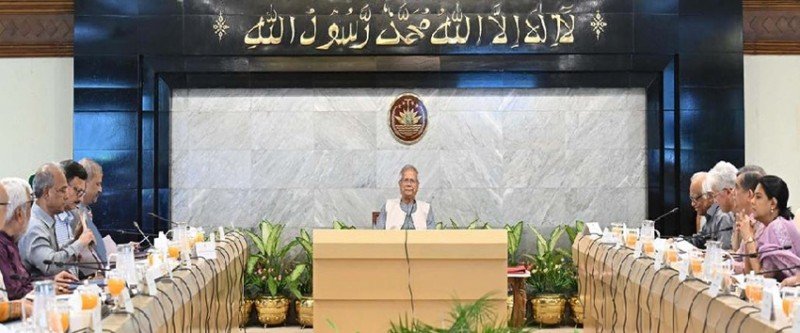
The Advisory Council on Thursday approved proposals to amend two key Election Commission laws; the Election Commission Secretariat Act, 2009, and the Election Officers (Special Provisions) Act, 1991, to promote free, fair and impartial elections.
The Council also gave the green light to several amendments to revenue-related laws under the National Board of Revenue (NBR).
The decisions were made during a meeting chaired by Chief Adviser Professor Muhammad Yunus at Chief Adviser’s Office at Tejgaon in Dhaka.
Following the meeting, Chief Adviser’s Press Secretary Shafiqul Alam briefed reporters at Foreign Service Academy.
Alam explained that the amendments aim to make the Election Commission’s work more dynamic and to ensure greater accountability among officials involved in election management.
He highlighted that clearer provisions regarding punishment for negligence during elections have been introduced.
Specifically, the amendments bring significant changes to sections 2, 5 and 6 of the Election Officers (Special Provisions) Act, 1991, including a redefinition of the term “election officer,” updated disciplinary procedures and the addition of new subsections.
Regarding revenue laws, the Advisory Council gave in-principle approval to the draft of several financial laws (second amendment) ordinance, 2025, prepared under NBR.
Among the changes, the Value Added Tax (VAT) and Supplementary Duty Act, 2012 has been amended to allow VAT exemptions in specific cases through special orders.
The Income Tax Act, 2023, has also been revised to increase the withholding tax on corporate taxpayers’ investments in government or approved securities from 10% to 15%.
Additionally, a provision was introduced to treat tax collection from commercial buses and transport sectors as final taxable income.
The meeting also reviewed progress on 77 important reform proposals from previous batches out of a total of 121.
Of these, 24 have been fully implemented, 14 partially implemented, with the remainder in progress.
Chief Adviser Yunus directed all ministries and divisions to compile and submit lists of reforms they have completed independently, alongside those recommended by the Reform Commission.
The Cabinet Division is expected to gather these progress reports by early next month and publish them in a booklet for public access, according to Shafiqul Alam.
 Weekly Bangla Mirror | Bangla Mirror, Bangladeshi news in UK, bangla mirror news
Weekly Bangla Mirror | Bangla Mirror, Bangladeshi news in UK, bangla mirror news



